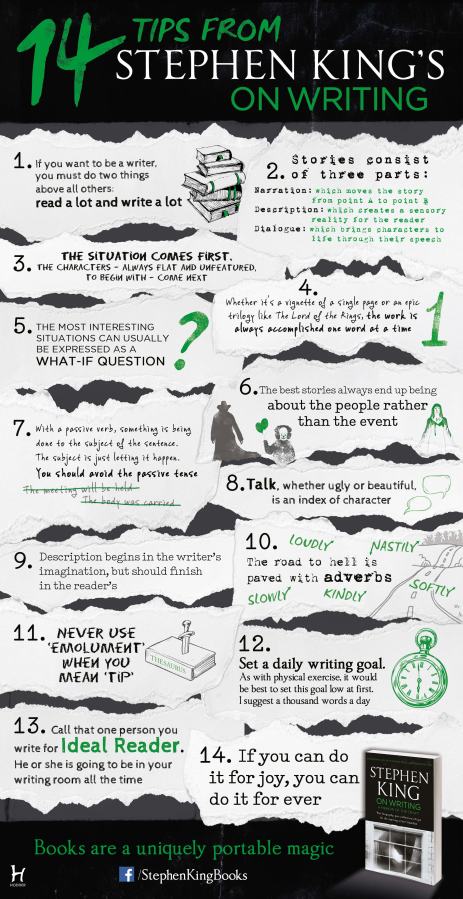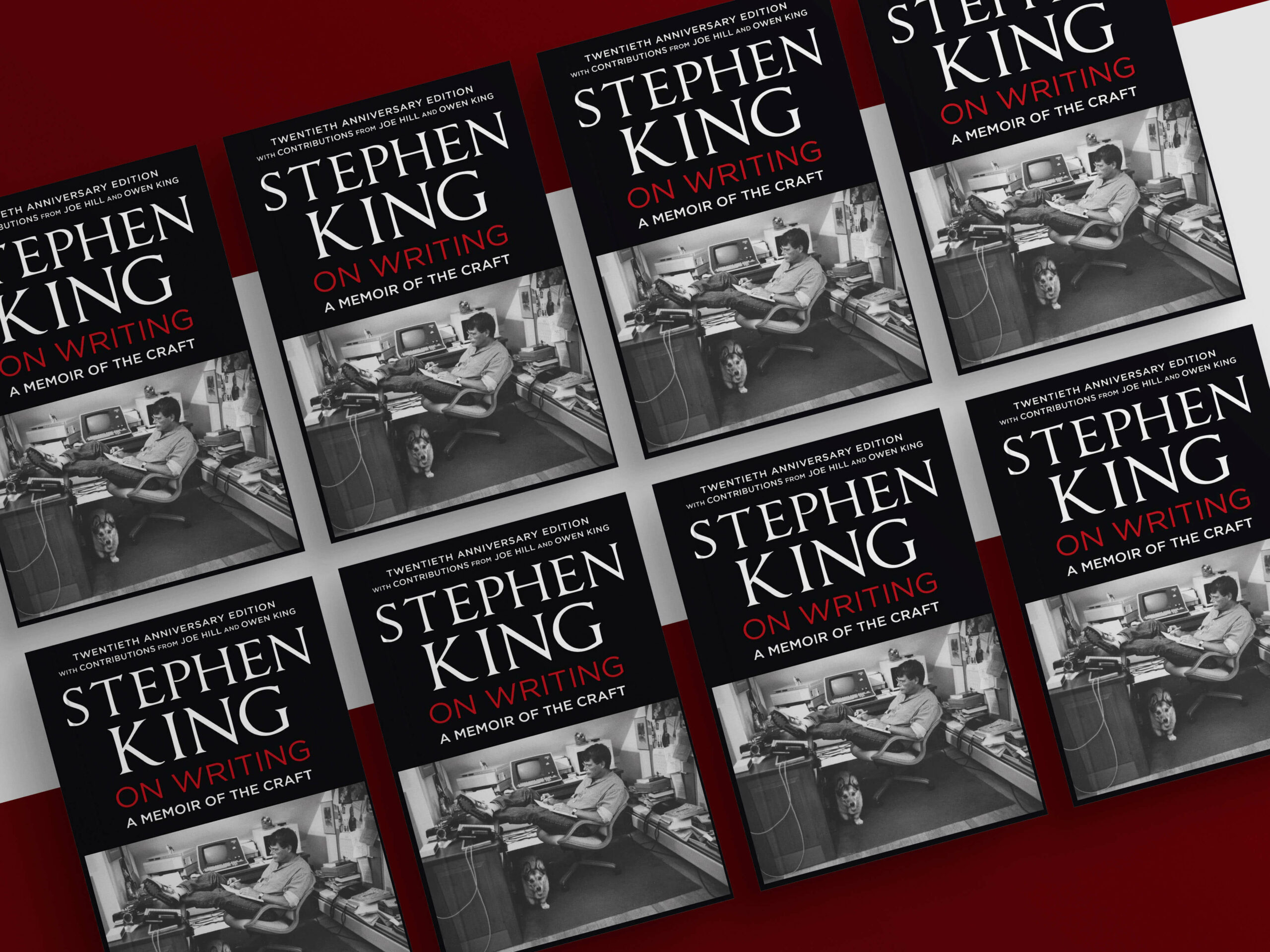On the Memoir
I wasn’t looking for this book, actually, I accidentally picked it up and decided to read a bit of it. And well I couldn’t really put it down afterwards. The book is divided into 3 main parts, ‘C.V.’, ‘On Writing’ and ‘On Living: A Postscript’. The first part ‘C.V.’ is basically a memoir of Stephen King following his life from childhood to becoming a published author. I started off not knowing much about his life, making everything even more fascinating. I could also very much feel his style in this part. Not many fiction books made me feel so disgusted and yucky as Stephen King did describing getting his ear lanced as a child. However, I enjoyed following his journey; to hear his struggles of going from a kid copying monster movies to getting his first paperback published.
The ‘Postscript’ is the story of his accident, which happened while writing this book. Stephen King got hit by a truck and almost lost his life. He fought to get back into writing and this book was the one that he came back with. He lets you into his life, painting such a vivid, painful and true picture you can’t help but trust his advice when he talks about writing.
On Writing
The best part of this book is undeniably the ‘On Writing’ part. Stephen King really sits down here, invites you into his study and tell you everything. We start from words, how to use or mostly not to use verbs and adverbs, to sentences and onto paragraphs. Stephen King compares writing to using a toolbox, and indeed he helps you identify all the tools and tells you how to use them. In a way he demystifies writing. He says it out loud; you don’t need to have the whole plot worked out to start writing, or that it won’t be good the first time, but you need to write and write and write.
Two things he always comes back to are reading and writing. His most fundamental advice for anyone who wants to become a writer is to read as much as you can and write as much as you can. Both will make you better. King talks about how he reads wherever and whenever he can, and this part has one of my favourite quotes from the book:
“If I have to spend time in purgatory before going to one place or the other, I guess I’ll be all right as long as there’s a lending library (if there is it’s probably stocked with nothing but novels by Danielle Steel and Chicken Soup books, ha-ha, joke’s on you, Steve).”

Stephen King one of the biggest horror and crime writer of our day took this role of a teacher very seriously. Throughout the book, he gives many examples of sentences or paragraphs that are good and ones that are bad and explain why. At the very end of the book, he even gives a whole chapter of editing advice. He takes a section of his own writing and demonstrates how he gets to the second draft. He crosses out or rewrites parts, and then explains in the notes why he did certain things.
Besides this, the book also has a writing exercise in it and a reading list he put together for future writers. Bust most importantly ‘On Writing’ made me feel seen, made me feel valid as a beginner writer. Seeing how the big Stephen King went through the same emotions I do. How he struggled with creativity and other challenges and how he still became one of the most famous authors of our time.
In conclusion, if you are interested in writing this is a must-read. For a memoir/educational advice book, this is far too funny, real and actually helpful. I wish you good reading and writing!




